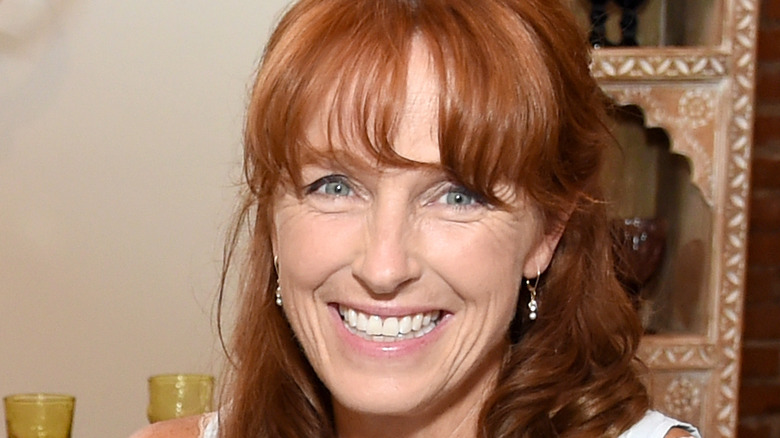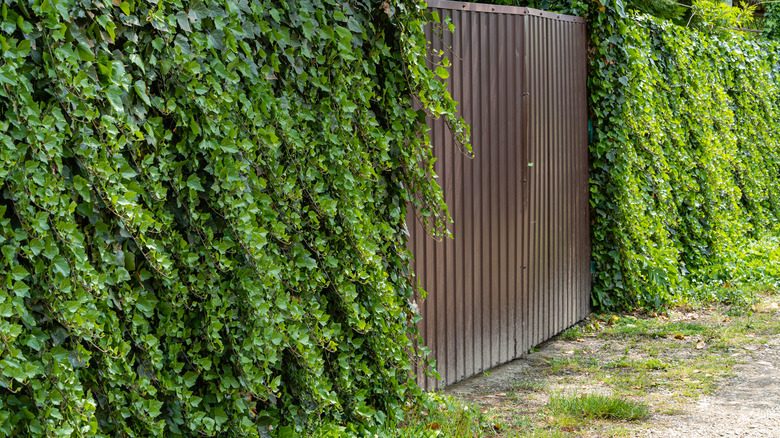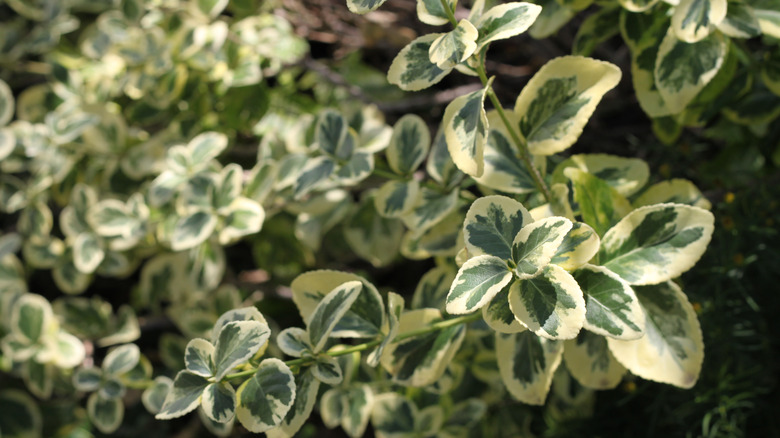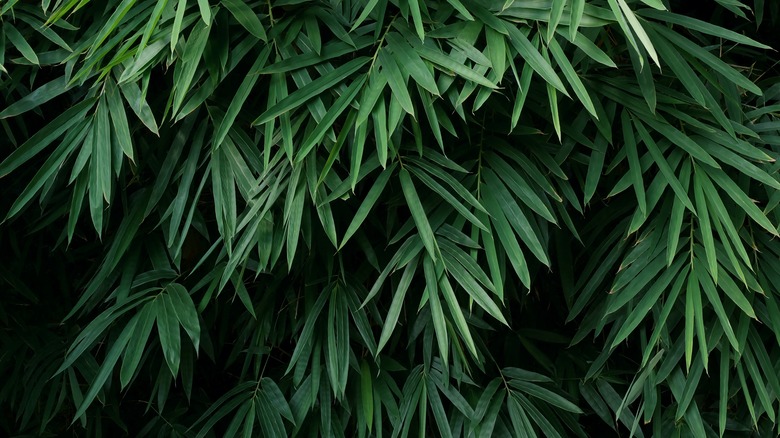Good Bones Star Karen Laine Explains What You Should Be Cautious Of Planting In Your Yard
HGTV star Karen Laine is no stranger to giving advice. After working years as an attorney, she's teamed up with her real estate agent daughter, Mina Starsiak Hawk, to flip and sell homes that have fallen into disrepair on "Good Bones." Together, the mother-daughter duo brings a wealth of knowledge that they use for good, bringing life back into old houses in a mission to improve run-down neighborhoods over time.
In a recent interview with Realtor.com, Laine shared some of that advice with readers so they could avoid making the same mistakes in their own homes. Laine and Hawk may be known for stripping the interiors of houses down to the studs, but this tip actually goes for something outside the walls — the yard. Keep reading to learn what plants Laine warns against incorporating into green spaces and why these choices might leave you with a difficult clean-up job and decreased curb appeal down the line.
English Ivy
English ivy can be beautiful, but unless it's properly maintained, this vining plant can quickly take over outdoor spaces. So quickly, in fact, that in North America, it's considered an invasive species. According to Alien Plant Working Group, while English ivy is a popular choice for ornamental ground cover because it's so low maintenance, that very trait is what makes it difficult to control. As ivy climbs, it can block sunlight, add weight, and harbor plant pathogens that are harmful to trees.
Laine says this plant will quickly spread and cautions against including it in your yard unless you're incredibly dedicated to maintaining it (via Realtor.com). If it gets out of hand, trimming back vines that have climbed over walls, trees, and fences can be a difficult and time-consuming project. As it grows, English ivy even releases a glue-like substance to help it stick to different surfaces. Indeed, it's an impressive evolutionary characteristic, but a major headache when it comes to cleaning up.
Euonymous
Euonymous might not be as fast-growing as English ivy, but its hardiness and impact in North American ecosystems has earned it the title of an invasive species. According to the Ecological Landscape Alliance, this plant is still widely cultivated and used as ornamental greenery. However, its lack of natural predators in North America means its growth can quickly spiral out of control and pull resources from native wildlife. If you decide to remove this plant down the line, Laine says you may be faced with some issues as well.
"Euonymus will put its roots down over a foot deep, and the roots run. They will go for 40 yards if you let them, and if you don't get out every piece of root, it's going to grow back," she says in her Realtor.com interview. Properly removing these plants involves quite a bit of digging, pulling roots, and additional treatment with herbicides, sometimes over the course of several months.
Bamboo
Bamboo, just like English ivy and euonymous, is a cautionary tale of what can happen with too much of a good thing. Despite the common public perception that bamboo is an invasive plant, it's actually native to every continent besides Europe — and it, too, is prone to spiraling out of control (via Bambu Batu). Still, Laine cautions against choosing bamboo as a decorative plant unless you want to deal with a forest in a couple of years. "Even clumped bamboos, they will eventually leave their clump and spread. They have to be in a spot where they can be constrained," she says (via Realtor.com).
When it comes to picking plants for your yard, the most important concern is doing thorough research. All of these plant species are popular choices that you could easily come across at a local garden store, despite their proclivity for overgrowth. Ultimately, however, doing a quick Google before committing is a surefire way to save yourself time and effort down the line. "Any of those invasive species that you have to get rid of, it is hard, really hard," Laine says.



